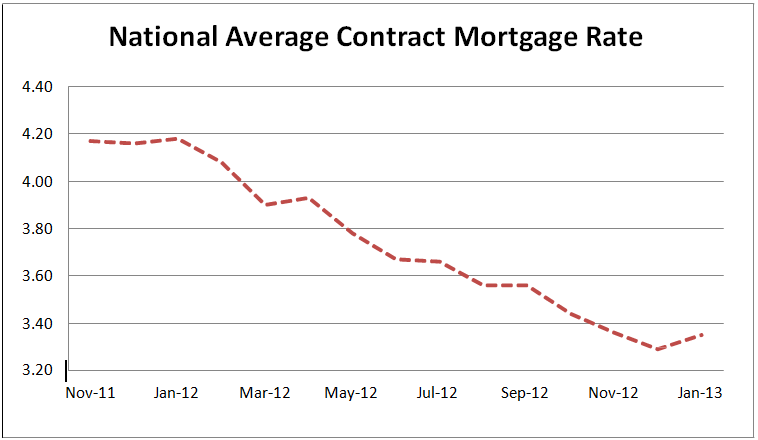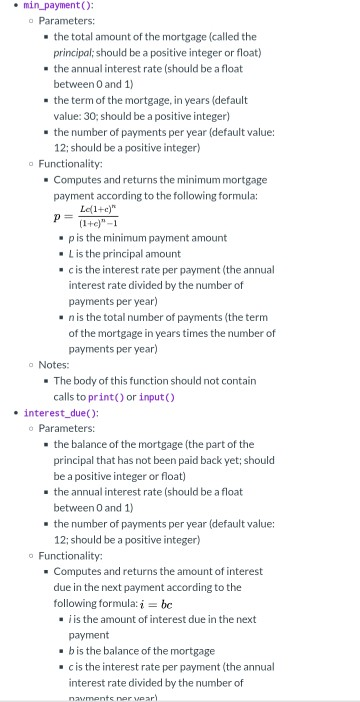Taking out a reverse mortgage is a huge choice, since you may not have the ability to get out of this loan without offering your home to pay off the financial obligation. You likewise need to carefully consider your alternatives to avoid utilizing up all the equity you have actually developed in your house.
Reverse home loans generally are not used for getaways or other "enjoyable" things. The reality is that a lot of customers utilize their loans for immediate or pushing monetary needs, such as paying off their existing home mortgage or other debts. Or they may consider these loans to supplement their monthly earnings, so they can manage to continue living in their own home longer. Adjustables have 5 payment alternatives: Set monthly payments so long as you or your qualified partner remain in the home Set monthly payments for a set period Unspecified payments when you need them, till you have actually tired your funds A credit line and set month-to-month payments for as long https://www.ktvn.com/story/43143561/wesley-financial-group-responds-to-legitimacy-accusations as you or your eligible partner reside in the home A credit line and set regular monthly payments for a fixed duration of your selecting To get a reverse home loan, you must fulfill the following FHA requirements: You're 62 or older You and/or an eligible spouse who must be called as such on the loan even if she or he is not a co-borrower reside in the house as your main home You have no delinquent federal debts You own your house outright or have a significant amount of equity in it You participate in the compulsory counseling session with a home equity conversion home mortgages (HECM) counselor authorized by the Department of Real Estate and Urban Advancement Your house fulfills all FHA property requirements and flood requirements You continue paying all property taxes, homeowners insurance coverage and other home upkeep charges as long as you reside in the home Prior to issuing a reverse mortgage, a lending institution will check your credit rating, verify your monthly income versus your month-to-month monetary obligations and purchase an appraisal on your house.
Nearly all reverse home loans are released as house equity conversion mortgages (HECMs), which are guaranteed by the Federal Housing Administration. HECMs include strict borrowing guidelines and a loan limitation. If you believe a reverse mortgage may be best for you, find an HECM counselor or call 800-569-4287 toll-free to get more information about this financing option.
A reverse mortgage makes it possible for homeowners, particularly those who are of retirement age, to borrow versus the equity in their homes. One advantage of a reverse mortgage is that loan providers do not generally have minimum earnings or credit report requirements, which can assist homeowners aiming to cover living expenditures. But a reverse home loan features a number of disadvantages, such as in advance and ongoing costs, a variable rate of interest, an ever-rising loan balance and a decrease in house equity.
As its name recommends, a reverse home mortgage is the opposite of a conventional home loan. With a reverse mortgage, you don't obtain cash to purchase a house; rather, you take advantage of the equity of your home to get a loan. A reverse home loan is implied for house owners who have paid off their home loan or who have actually collected a lot of home equity.
One of the benefits of a reverse mortgage is that loan providers characteristically do not impose income or credit requirements. Profits from a reverse home loan are normally tax-free, and not a cent of the loan requires to be paid back if the debtor remains in the home, pays real estate tax and house owners insurance coverage, and covers maintenance expenditures.
Examine This Report about How Do Banks Make Money On Mortgages
Those scenarios trigger the requirement for you, https://www.wrde.com/story/43143561/wesley-financial-group-responds-to-legitimacy-accusations your partner or your estate to repay the loan. 3 kinds of reverse home mortgages are offered: Single-purpose reverse home loan: These loans, offered from federal government agencies and not-for-profit groups, are developed for simply one function detailed by the lending institution. For example, someone might use profits from a single-purpose reverse home mortgage to deal with a home enhancement project or pay real estate tax.

Exclusive reverse home mortgage: Proprietary reverse home mortgages, offered from private lenders, provide more versatility than single-purpose reverse home mortgages. Unlike single-purpose reverse mortgages, proprietary reverse home mortgages normally don't come with constraints on how you can spend the earnings. This alternative can be specifically attractive to owners whose houses bring high worths and who wish to borrow a substantial amount of cash - what are the best banks https://www.wtnzfox43.com/story/43143561/wesley-financial-group-responds-to-legitimacy-accusations for mortgages.
An HECM, guaranteed by the Federal Real Estate Administration (FHA), is the most typical type of reverse home loan. Since 2020, the HECM borrowing limit was $765,600. Although earnings from an HECM can be used for any function, some house owners may not qualify due to specific restrictions. These loans are offered just to property owners who are at least 62 years of ages.
Those consist of:: Similar to a traditional home loan, a lending institution usually charges several costs when you secure a reverse home mortgage. Those can consist of a mortgage insurance coverage premium, an origination cost, a maintenance fee and third-party costs. For an HCEM, the preliminary home loan insurance premium is 2% of the loan quantity; on top of that, you'll pay an annual mortgage premium of 0.

You'll likewise pay an origination charge of $2,500 or 2% of the first $200,000 of your home value (whichever is greater), plus 1% of the amount surpassing $200,000; origination charges can not surpass $6,000.: The majority of reverse home mortgages have variable rates of interest, indicating the rate of interest that identifies just how much is included to your loan balance monthly varies throughout the life of the loan.: Interest paid on a reverse home mortgage can't be subtracted on your annual income tax return up until the loan is paid off.: A reverse home loan can siphon equity from your house, leading to a lower property value for you and your heirs.: If your home isn't in good shape, you may need to make repairs prior to you can receive a reverse mortgage.: Aside from when a property owner dies or moves out, the reverse mortgage may need to be paid back faster than expected if the owner fails to pay home taxes or property owners insurance, or if the owner isn't staying up to date with house upkeep.
In addition to its disadvantages, there are three examples of when a reverse home mortgage may be absolutely out of the concern: You desire to move relatively quickly. Timing is crucial when it comes to getting a reverse mortgage. If you're aiming to transfer in the next few years, it might not be smart to saddle yourself with a reverse mortgage.